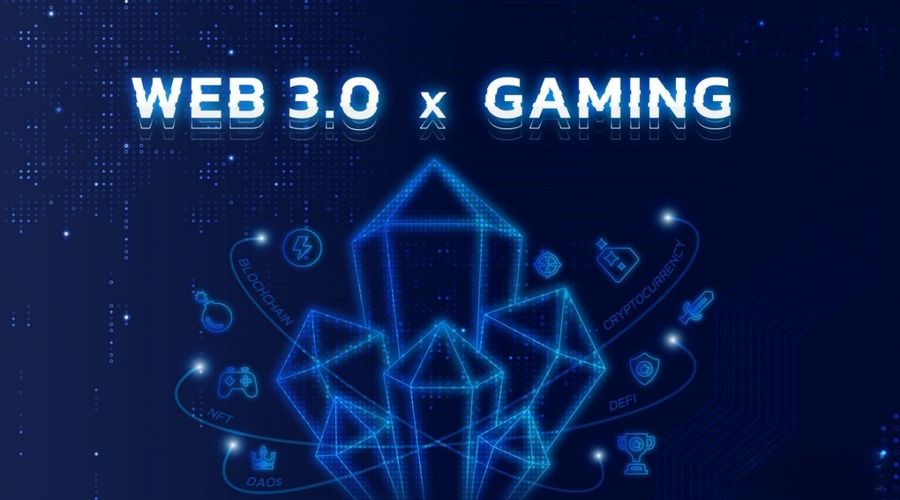The world is witnessing a significant shift in the way we perceive the internet and its applications. The emergence of Web 3 technology has opened up new possibilities, particularly in the gaming and virtual reality space. In this article, we explore the impact of Web 3 on the future of online gaming and virtual reality.
Introduction to Gaming Industry
The internet has come a long way from its humble beginnings as a mere tool for information sharing. Today, it has evolved into a platform for communication, commerce, and entertainment. The gaming industry, in particular, has undergone significant growth, driven by advancements in technology and the proliferation of online gaming platforms. However, despite the many advantages of these platforms, they are still plagued by challenges such as security and transparency.
The Emergence of Web 3
Web 3 is the latest evolution of the internet, which aims to address some of the challenges of Web 2.0. Unlike its predecessor, Web 3 is designed to be decentralized, transparent, and secure. It utilizes blockchain technology to enable peer-to-peer transactions and the creation of decentralized applications (DApps). The benefits of Web 3 extend beyond financial transactions and extend to the gaming industry, where it can provide a more immersive and secure gaming experience.
Web 3-based Gaming Platforms
The gaming industry is already beginning to embrace Web 3 technology, and several gaming platforms are currently utilizing it to provide a more secure and transparent gaming experience. One of the most popular Web 3-based gaming platforms is Axie Infinity, a game that utilizes blockchain technology to enable players to earn cryptocurrency while playing. The game has gained significant popularity, with millions of users worldwide.
Another Web 3-based gaming platform is Decentraland, a virtual reality platform that allows users to create, experience, and monetize content and applications. Decentraland uses blockchain technology to create a decentralized platform that is not controlled by a single entity, making it more secure and transparent.
CryptoKitties is another Web 3-based game that has gained popularity in recent years. The game allows players to collect, breed, and trade virtual cats using cryptocurrency. The game’s use of blockchain technology ensures that each cat is unique and cannot be replicated, adding to its value and collectability.
The Future of Web 3-based Gaming

As the decentralized web technology continues to mature, we can expect to see significant advancements in the gaming industry. The use of blockchain technology to create decentralized gaming platforms provides a more secure and transparent gaming experience, where players can be assured that their data is protected, and game outcomes are fair. Moreover, the use of virtual reality technology in gaming can provide a more immersive and interactive experience, where players can interact with each other in a virtual world.
The future of the decentralized web-based gaming is promising, as more developers create innovative gaming experiences that leverage blockchain technology and virtual reality. We can expect to see more decentralized gaming platforms, where players can earn cryptocurrency while playing, and a greater emphasis on creating immersive and interactive gaming experiences that blur the line between reality and virtual reality.
Challenges of Web 3-based Gaming
While decentralized web-based gaming has the potential to revolutionize the gaming industry, it is not without its challenges. The technology is still in its early stages, and there is a lack of understanding among the general public. Moreover, the cost of entry is still high, with players needing to purchase cryptocurrency to participate in some games. These challenges must be addressed for Web 3-based gaming to reach its full potential.
Another challenge is the need for interoperability between different decentralized web-based gaming platforms. As the number of decentralized gaming platforms grows, it is essential to ensure that they can communicate with each other seamlessly. This interoperability will enable the creation of a unified gaming ecosystem that is not controlled by a single entity, providing more choices and opportunities for players.
Advantages of Web 3-Based Gaming
Increased Security
- Decentralized gaming platforms eliminate the need for a central authority, making them less vulnerable to attacks and hacking attempts.
- The use of blockchain technology ensures that game outcomes are fair and transparent, further enhancing the gaming experience.
Earning Cryptocurrency
- Many Web 3-based gaming platforms allow players to earn cryptocurrency by participating in games and other activities.
- This creates new opportunities for players to earn money while having fun, and provides a new revenue stream for game developers.
Enhanced Gaming Experience
- The use of virtual reality in Web 3-based gaming can create a more immersive and interactive gaming experience.
- Players can interact with each other in a virtual world, enhancing the social aspect of gaming.
- VR technology can provide a more realistic and engaging gaming experience for players.
New Revenue Streams
- Web 3-based gaming can create new revenue streams for game developers, such as through the use of NFTs and decentralized marketplaces.
- Game developers can earn a percentage of each transaction that occurs on the marketplace, creating a new way to monetize their games.
Social Impact
- Decentralized gaming platforms can promote social inclusion and diversity, as players from different backgrounds can connect and interact with each other in a safe and secure environment.
- Web 3-based gaming can be used for charitable purposes, with a portion of the revenue generated from the game being donated to charity.
Use Cases for Web 3-based Gaming
Web 3-based gaming has several potential use cases beyond traditional online gaming. For example, it can be used for educational purposes, providing an immersive and interactive way for students to learn. The decentralized web-based gaming can also be used for training purposes, providing a realistic and safe environment for employees to learn new skills.
Another potential use case for Web 3-based gaming is in the healthcare industry. It can be used to provide virtual therapy sessions, allowing patients to receive treatment from the comfort of their homes. Moreover, decentralized web-based gaming can be used for rehabilitation purposes, providing a fun and engaging way for patients to recover from injuries or surgeries.
Challenges of Web 3-based Gaming
While Web 3-based gaming provides several advantages, it is not without its challenges. One of the most significant challenges is the lack of understanding among the general public. Web 3 technology is still in its early stages, and many people are not familiar with it. This can make it difficult for game developers to attract new players and create a viable market for their games.
Another challenge is the cost of entry. The decentralized web-based gaming platforms often require players to purchase cryptocurrency to participate in games, which can be a barrier for some players. Moreover, the technology is still evolving, and there are still several technical challenges that need to be addressed, such as scalability and interoperability.
The Role of NFTs in Web 3-based Gaming
Non-fungible tokens (NFTs) are another aspect of the decentralized web technology that has the potential to transform the gaming industry. NFTs are digital assets that are unique and cannot be replicated. They utilize blockchain technology to provide proof of ownership and authenticity, and can be used in various applications, including gaming.
In Web 3-based gaming, NFTs can be used to represent in-game assets such as weapons, armor, and other collectibles. Players can buy, sell, and trade these assets on decentralized marketplaces, creating a new economy within the gaming industry. Moreover, the use of NFTs can create new revenue streams for game developers, as they can earn a percentage of each transaction that occurs on the marketplace.
Web 3-based Gaming and Social Impact
Web 3-based gaming also has the potential to create a positive social impact. Decentralized gaming platforms can enable players from all over the world to connect and interact with each other in a safe and secure environment. This can help to promote social inclusion and diversity, as players from different backgrounds can come together to share common interests.
Moreover, Web 3-based gaming can be used for charitable purposes. For example, game developers can create games that support charitable causes, with a portion of the revenue generated from the game being donated to charity. Additionally, players can participate in charitable activities within the game, such as donating in-game assets to charitable organizations.
Future of Web 3-based Gaming and Virtual Reality
The future of Web 3-based gaming and virtual reality is promising, as more developers and players embrace the technology. We can expect to see more decentralized gaming platforms that utilize blockchain technology and NFTs, creating new opportunities for players and game developers. Additionally, we can expect to see more immersive and interactive gaming experiences that utilize virtual reality technology, providing a more realistic and engaging experience for players.
Moreover, as decentralized web technology continues to evolve, we can expect to see new applications and use cases for decentralized gaming platforms. From education and training to healthcare and social impact, decentralized web-based gaming has the potential to transform various industries and provide new opportunities for players and developers alike.
Conclusion
Web 3-based gaming and virtual reality are two of the most exciting developments in the gaming industry. The use of blockchain technology, NFTs, and virtual reality provides a more secure, transparent, and immersive gaming experience, with new opportunities for players and game developers. Moreover, decentralized web-based gaming has the potential to create a positive social impact, promoting social inclusion, diversity, and charitable causes. With the continued evolution of decentralized web technology and the development of new gaming experiences, we can look forward to a new era of online gaming and virtual reality that provides more choices, opportunities, and excitement for players.





